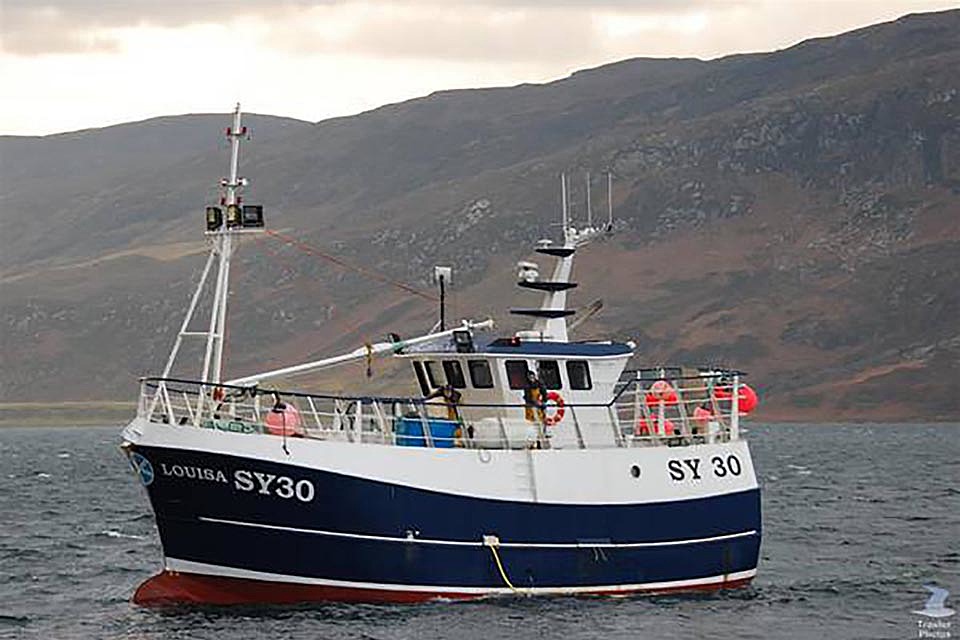Safety flyer to the fishing industry - Louisa
Published 27 July 2017
1. Summary
Fishing vessel Louisa (SY30) foundering with 3 fatalities on 9 April 2016

Figure 1: Fishing vessel Louisa (image: www.trawlerphotos.co.uk)
2. Narrative
Louisa, a creel vessel fitted with a vivier system for maintaining the catch alive, foundered with the loss of three lives while anchored close to the shore in Mingulay Bay in the Outer Hebrides.
The skipper and his three crew had been working long hours, and had anchored the vessel at approximately 2230 to enable them to rest. Having all gone to bed, they were woken suddenly in the early hours of the following morning, 9 April, with the vessel significantly down by the head and apparently sinking. They were able to escape to the aft deck, don lifejackets and activate an Emergency Position Indicating Radio Beacon (EPIRB) before abandoning the vessel, but were unable to inflate the liferaft.
One crewman managed to swim ashore and survive. However, the rescue services found the skipper and the two remaining crew unresponsive and face down in the water. The skipper was lost during recovery and remains missing. The two crew were later declared deceased caused by drowning.
3. Safety lessons
-
The skipper and crew had all gone to bed, leaving the wheelhouse unmanned despite the engine running apparently at slow speed with the propeller engaged astern, and the vivier system pump driven from the main engine power take off. All machinery and accommodation doors were left open and the hold hatch cover was secured in the open position. The deck wash pump had probably been left running, and it is concluded that flooding of the hold from the deck wash hose through the open hold hatch was the probable cause of the foundering. The condition in which Louisa was left while all on board went to bed was inconsistent with best practice and demonstrated an underestimation of the risks associated with flooding and foundering.
-
Louisa had been fitted with bilge pumps and bilge level alarms as required by The Code of Practice for the Safety of Small Fishing Vessels. However, the hold bilge alarm had previously been disabled, which prevented early notification of hold flooding to the skipper and crew.
-
The debilitating effect of fatigue should not be underestimated. Fatigue affects both physical and mental abilities and can significantly reduce risk perception and awareness. Instead of managing work routines to prevent fatigue and so ensure adequate levels of safety were maintained, the skipper drove the crew and himself to a state of tiredness such that the safety of the vessel and its crew were compromised.
-
Louisa was not transmitting an Automatic Identification System (AIS) signal, and the skipper and crew were not equipped with personal locator beacons. The rescue services were therefore reliant on gathering local information while awaiting a confirmed position from the vessel’s EPIRB. An historical record of Louisa’s movements would have proved particularly valuable to those involved in initiating and conducting the search and rescue operation.
Our accident investigation report is available at: https://www.gov.uk/maib-reports/sinking-of-vivier-creel-boat-louisa-with-loss-of-3-lives
For all general enquiries:
Marine Accident Investigation Branch
First Floor, Spring Place
105 Commercial Road
Southampton
SO15 1GH
Email iso@maib.gov.uk
Enquiries during office hours +44 (0)23 8039 5500

